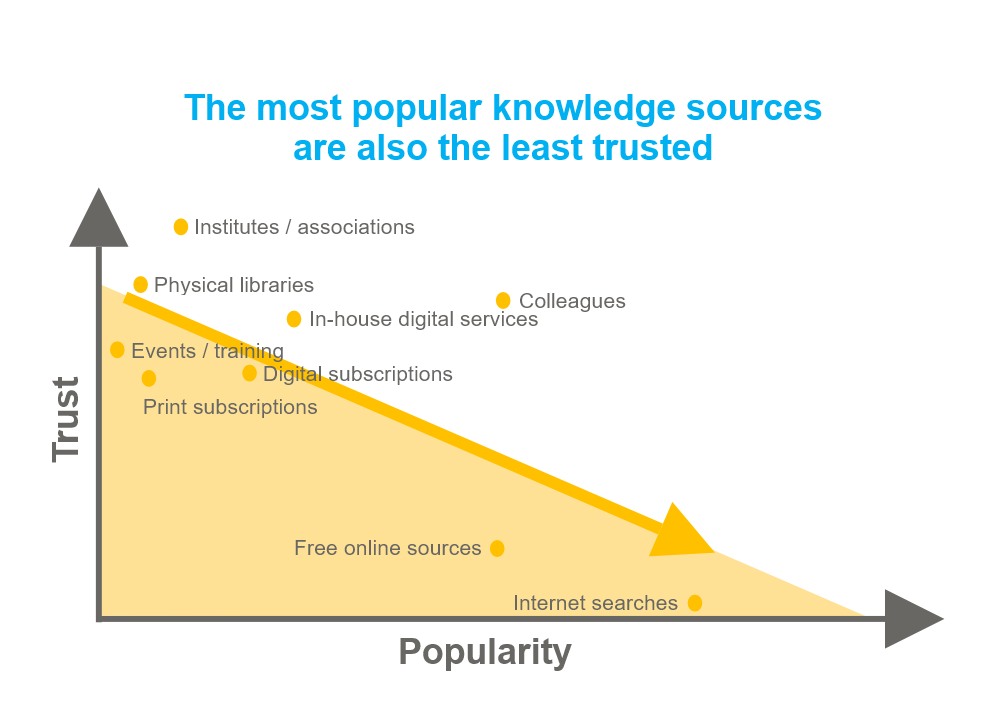This is the startling finding of a survey carried out by the Construction Knowledge Task Group. 299 practitioners from every part of the industry took part in the survey. 38.5% said they did not have easy access to all the knowledge they need to do their job. This begs the question, what are they doing without, and how critical is it?
Practitioners also admitted they use less-trusted knowledge sources more frequently than more-trusted knowledge sources, with web searches and free online resources accounting for almost half of all the knowledge accessed.
Other key findings include:
- Cost and sign-up forms are significant barriers to accessing knowledge, particularly for SMEs.
- Practitioners are unaware of much of the knowledge that is available, they are overwhelmed by how much knowledge there is and frustrated by how fragmented it is.
- There is a ‘them and us’ culture separating those in the knowledge loop from those stuck on the outside.
- There is a need for quick and straightforward access to knowledge on demand.
The survey also revealed that designers access industry knowledge up to four times more frequently than decision makers such as clients and project managers, and that the most frequently-accessed knowledge is practical, specific guidance that supports day-to-day activities. Less specific, traditional ‘learning’ material is not as popular.
The purpose of the survey, which ran at the end of 2018, was to help the Construction Knowledge Task Group steer its work, improving the way industry knowledge is prepared, accessed and applied. It was distributed to the membership and other networks of the organisations that form the Task Group.
Ann Bentley, Global Board Director at Rider Levett Bucknall, and Member of the Construction Leadership Council said:
“The results of this survey confirm what I suspected, and should be a wake-up call for the industry. Practitioners have embraced the internet and are seeking out easy-to-access, easy-to-apply knowledge. The industry needs to make sure they find what they are looking for. This means bringing knowledge into 21st century and taking a more collaborative and systematic approach to how it is prepared and shared. BIM has shown how this can be done for data and information, but knowledge is still stuck in the past.”
Convenor of the Task Group, architect Dr Gregor Harvie said:
“Construction is a knowledge-based industry. Knowledge helps spread best practice, promote innovation and prevent mistakes. But this important survey reveals that all too often practitioners are unaware of what is available, or they do not have easy access to it. As a result, knowledge has less impact on the ground than it should.”
The survey suggests the future should be one in which knowledge is better integrated, less siloed, more easy-to-access and available through flexible subscriptions and intelligent search tools. The Task Group will meet in January to discuss how to drive this agenda forward.
You can see the survey results in full at: https://www.designingbuildings.co.uk/Construction_knowledge_survey_results






